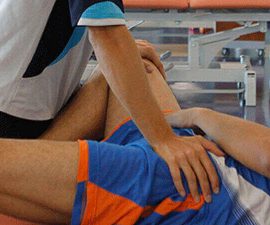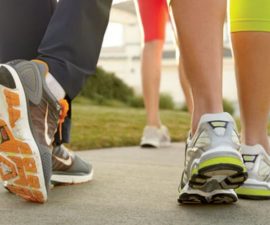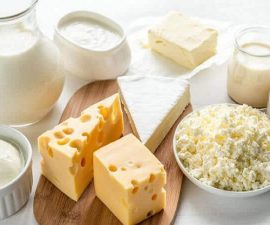… Continued …
- Ice creams, cheese, or other dairy products are low in fiber and high in fat. They have a popular reputation of being ‘binding’, making you constipated more likely.
- Fruits are high in fiber. Bananas are good source of soluble fiber, making your bowel work more easily – but make sure to choose the good and ripe ones! Unripen bananas can cause and worsen your constipation.
- Red meat, another common culprit for constipation. It is not only a specific constipating food, but also it can take the place of your fiber-rich foods in your daily diet if you consume it regularly.
- Fried foods can make the movement through your bowel run more slowly since they are high in fat and very poor in fiber. Also, they are greasy and bad for your cardiovascular system. It’s much better to choose alternative, healthy cooking methods – broiling or steaming for example.
- Frozen meals for dinner. They look practical and easy to get, but many of them are high in fat, poor in nutrition, and low in fiber. They are also usually rich in sodium that can tie up more water, making you more difficult to pass the stools.
Avoid smoking!
Tobacco smoke can hurt many parts of the body, including your abdominal muscles. Nicotine can increase tension in your muscles and make it harder for O2 (oxygen) to travel into muscle cells. If your muscles don’t get enough oxygen, they can tire more quickly.
And besides its role in causing and worsening many serious diseases, it often makes you cough incessantly. If you have chronic cough, this can worsen your hernia.
Protect your abdominal muscles!
It’s also important to keep activities that worsen the problem to a minimum, especially some that can cause more pressure to your abdominal wall fascia! For example, avoid any heavy lifting! If you need to lift heavy objects, ask someone else to help if necessary. Also, don’t bend your waist /back – always bend from the knees!
How about exercises?
Exercise is a good way to help reduce your excessive weight. But it’s not always easy to exercise with hernia. Even some types of exercise could be counterproductive!
Avoid any exercises that involve pushing, pulling, or heavy lifting! These kinds of exercise can cause more abdominal pressure, making the size of your hernia get bigger over time. To keep safe, go with types of exercise that doesn’t involve closing off your throat and straining with effort such as swimming, static cycling, and aerobics carried out at a steady state.
About hernia truss
This supportive undergarment (typically for men) is designed to help keep the protruding tissue of hernia in place, preventing the problem from worsening. It can make you feel comfortable for a while, but remember that it doesn’t treat /correct the problem.
In general, it’s still OK to use hernia truss as long as your hernia is not large and isn’t bothering you (ask a doctor for more advice). But you should not rely on hernia truss when the problem is causing discomfort. Though it is usually recommended for a short time before surgery, it is not a replacement for surgical treatment!
- http://www.nhs.uk/conditions/hernia/Pages/Introduction.aspx
- http://www.mayoclinic.org/diseases-conditions/inguinal-hernia/manage/ptc-20207684





Info for Jeremy
what do you mean jeremy?